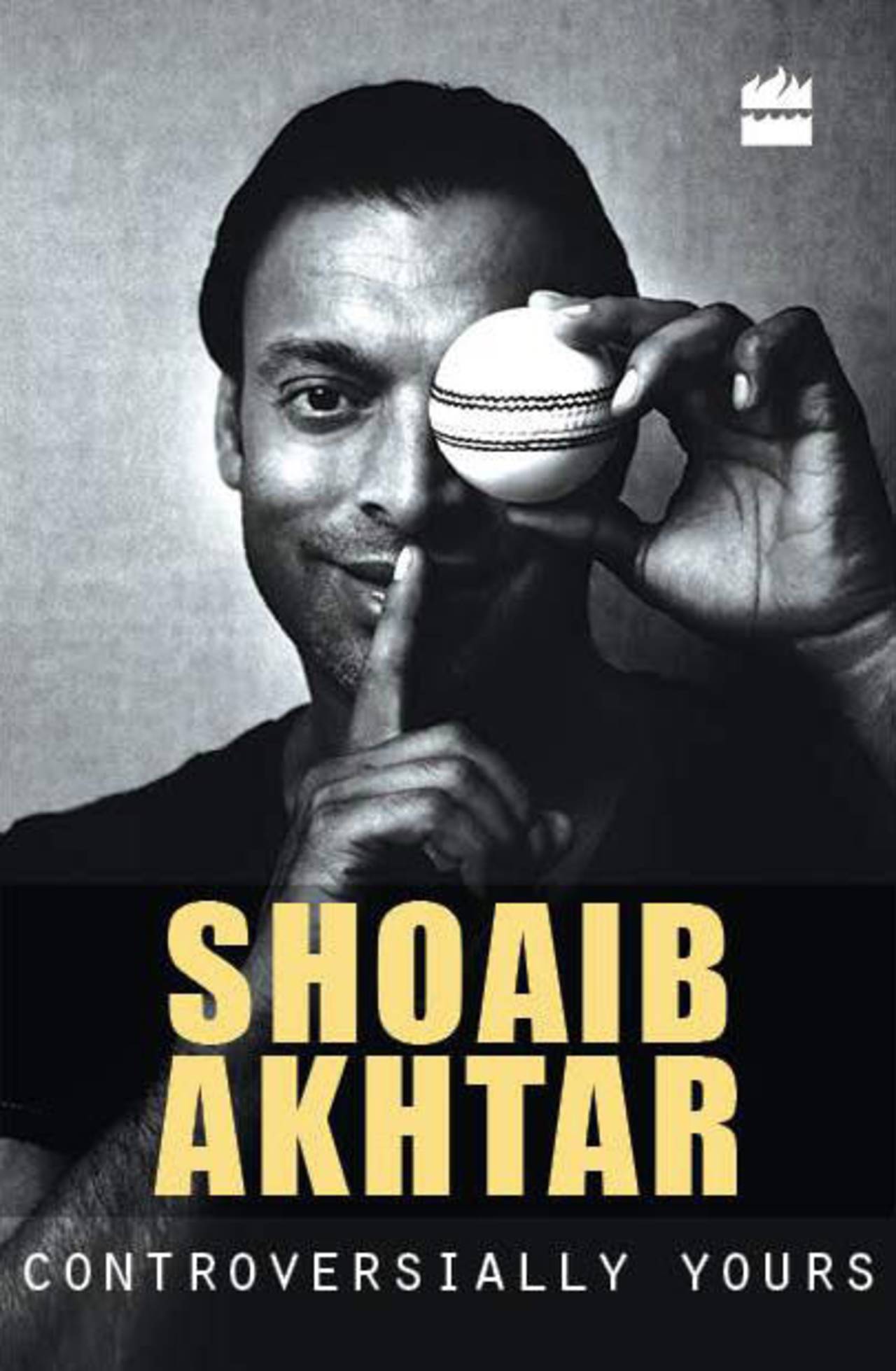The first thing you realise when you read
Shoaib Akhtar's autobiography is that much of the media reaction to it is a distraction from the book's true merits. Yes, he has admitted to ball-tampering, delivered questionable opinions on Sachin Tendulkar and Rahul Dravid, and blasted some of the high priests of Pakistan cricket. But he has also said a great deal that is more interesting, more important, and evidently more heartfelt.
As a device to enhance your pleasure of the game, this book delivers. Perhaps the most absorbing, at times even riveting, parts of it are the first four chapters, which detail Shoaib's ordeals before he became a celebrity. He was born into modest circumstances, a sickly child who at one point nearly died of whooping cough. The family struggled with money and would sometimes go hungry.
Despite the financial constraints, his parents worked hard to instill upright values in the children and ensure them an education. Shoaib tells us he was an ace student, and also a natural prankster. As a result, he was frequently in trouble. The pattern of conflicts that marked his international career was set early on.
Cricket did not become a focus until his teenage years, when Shoaib's passion for bowling fast was unleashed. Before that, he played informal street games, including
gilli-danda, and ran a lot - everywhere, aimlessly - because it made him feel free. Once he discovered cricket, he was drawn to role models, finding instant inspiration in Imran Khan's dynamic and towering figure. At the Pindi Club he saw his idols Imran, Wasim Akram and Waqar Younis practise under lights. That was when he made a personal vow to don the Pakistan colours.
All through the book Shoaib confronts his bad-boy image head-on, but his reflections are unlikely to sway anyone. He admits having little patience for rules and regulations, resents being preached to, and hates restrictions of any kind. He complains about never having had a proper mentor, but more likely it would not have been possible for even the most well-meaning mentor to get through to him.
His self-indulgent nature comes across loudly, as we are told of his love for money, girls, and even his own company. Speed, above everything, is his true love, and garners a long chapter by itself. All this underscores his ability to polarise. Shoaib's supporters will find him refreshingly honest; his detractors will deride him for confirming their worst assumptions.
When we come to the chapters covering his international career, it is disappointing to see a lack of serious introspection. All his great spells are glossed over, leaving the connoisseur unfulfilled. You keep expecting to be placed inside the fast bowler's head as he psycho-analyses the batsman, adjusts the field, and contemplates his wicket-taking plans, but it never happens. Shoaib could have entertained his readers with a ringside view of these intricacies; it feels like a golden opportunity lost. Also slightly disappointing are the book's occasional typos and misspellings. The persistent insertion of a hyphen between "T" and "20" is especially grating.
Nevertheless the overall package is a highly enjoyable one. Co-author Anshu Dogra has polished the material into a coherent and flowing narrative, yet still allowed Shoaib's first-person voice to be heard clearly. Urdu and Punjabi phrases are interspersed here and there, conveying the thought precisely and to the understanding reader's great amusement.
Anecdotes, often the choicest part of a memoir, are peppered throughout. There are accounts of Shoaib in college as he drives a motorbike through the principal's office, gets suspended for playing cricket in front of the girls' building, and convinces a channa wala to serve him free meals because one day Shoaib will be a famous cricketer.
Shoaib tells us about the anxiety of appearing for domestic cricket trials in Lahore, and the joy of catching the eye of Zaheer Abbas. We learn how, just before breaking into Test cricket, he spent an emotionally wrenching period in Karachi rooming with his buddy Saqlain Mushtaq when they were struggling cricketers and the city was in turmoil.
The book's tone is sometimes conversational, sometimes argumentative, with seamless transitions into languid storytelling one minute, breathless rhetoric the next. In this, the narrator sounds every bit the Shoaib Akhtar we know from his public persona.
Every now and then there is also some touching human moment - getting tongue-tied when an attractive Irish girl starts a conversation in a bar, buying his first car, looking up an old benefactor after becoming a star, revisiting old haunts in his hometown of Rawalpindi.
Naturally there is a good deal of score-settling as well, some of which - including targeted jabs at the likes of Wasim Akram, Javed Miandad, and Tendulkar - has been the subject of recent news cycles. Among all these, I found the description of Shoaib's administrative duel with former PCB chairman Nasim Ashraf particularly valuable. The drama is vividly sketched over several pages as Shoaib struggles and eventually succeeds in getting his PCB-enforced ban reversed by pulling political strings. His account provides sharp insight into Pakistan cricket's backroom ploys and validates a great deal of drawing-room chatter.
All said and done, you have to commend the man for a job well done. The very appearance of his book is a feat in itself: written output from Pakistan's cricketers has been sparse. Shoaib may have carried an image of carefree indiscipline for most of his career, but he has certainly demonstrated he has the discipline to produce a book with impact. In this he has outdone several other famous cricketing names from Pakistan.
Controversially Yours
Shoaib Akhtar
Harper Collins, 2011
Rs 499, 272pp

Saad Shafqat is a writer based in Karachi

